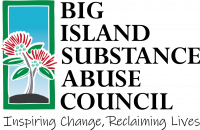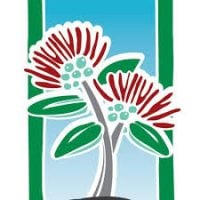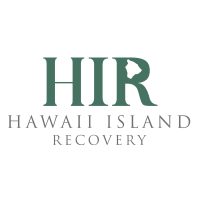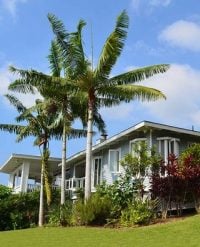Big Island Substance Abuse Council - Laukona House
Drug Rehab Center in Hilo, Hawaii
Big Island Substance Abuse Council - Laukona House in Hilo, Hawaii, offers a comprehensive and individualized approach to addiction treatment, including evidence-based practices and recovery-oriented services, and is nationally accredited and recognized by the State of Hawaii.
About Big Island Substance Abuse Council - Laukona House in Hawaii
Big Island Substance Abuse Council - Laukona House in Hilo, Hawaii, offers a variety of services to those suffering from substance abuse and addiction. Their goal is to provide individuals with the support they need in order to make a successful recovery. Laukona House provides a residential program and individual counseling along with other services. They also offer group therapies and seminars on topics such as relapse prevention, self-esteem, anger management, and more. Furthermore, their staff is knowledgeable in the field of addiction and provide a safe and supportive environment for clients.
Big Island Substance Abuse Council - Laukona House provides evidence-based practices for addiction treatment. This includes Cognitive Behavioral Therapy (CBT), Dialectical Behavioral Therapy (DBT), and Motivational Interviewing (MI). In addition, Laukona House offers 12 Step Programs and recovery-oriented services such as nutrition and exercise programs, life-skills training, and employability training. This comprehensive and individualized approach to treatment helps clients work through their addictions while building the tools they need to make a successful recovery.
Big Island Substance Abuse Council - Laukona House is nationally accredited through the Commission on Accreditation of Rehabilitation Facilities (CARF) and is recognized by the State of Hawaii as an Alcohol and Drug Abuse Treatment facility. They also use the American Society of Addiction Medicine (ASAM) criteria to assess each individual’s level of care. In addition, their staff is well-trained and experienced in the field of addiction treatment, and they provide 24-hour supervision and support to their clients.
Genders
Ages
Modality
Additional
Accreditations
State License
SAMHSA

CARF
The Commission on Accreditation of Rehabilitation Facilities (CARF) is a non-profit organization that specifically accredits rehab organizations. Founded in 1966, CARF's, mission is to help service providers like rehab facilities maintain high standards of care.
Conditions and Issues Treated
Rehabilitation, Medication, and Therapy – a combination of all three is most effective.
The most successful treatments for drug dependence or abuse have been those that include education and counseling and medication such as methadone or buprenorphine. The right drug abuse treatments need counseling, psychotherapy, and detoxification or medications to help with withdrawal symptoms.
Substance abuse can take many different forms, including the overuse or misuse of prescription drugs, unprescribed drugs, alcohol addiction, and drug addiction.
A combination of treatments is often needed to treat drug abuse issues effectively. In the case of drug abuse, there is no easy answer or one-size-fits-all cure.
While some drug addictions can be treated with counseling and support groups, many drug abusers also need medication to help them overcome their addiction. In other cases, drug abuse can lead to a medical problem and require medical treatment.
Treatment for drug addiction typically combines counseling and psychotherapy with medication and behavioral therapies. In some rare cases, hospitalization may also be required. All different treatments combined are the best way to help someone addicted to drugs, alcohol, or other substances.
Treatment for opioid addiction is best made with the help of medical professionals who are experienced in dealing with these types of drugs. This treatment can involve medications, exercise, behavioral therapy, and counseling sessions. It is important to note that the effectiveness of treatments for opioid addiction vary, so it is vital to research which treatment options are suitable for each individual.
Many people who struggle with opioid addiction need to attend specific programs like methadone , Suboxone or Vivitrol clinics.
These types of programs will provide the patient with legal, prescription medications that can help them overcome their cravings for illegal opioids like heroin or fentanyl . If the patient has a chronic condition like Hepatitis C, they must undergo treatment before they can begin taking these medications.
Levels of Care Offered
This center offers a variety of custom treatment tailored to individual recovery. Currently available are Aftercare Support, Drug Rehab, Inpatient, Residential, Sober-Living / Half-Way, with additional therapies available as listed below.
Inpatient recovery offers individual therapy, groups, and family therapy. The length of inpatient addiction treatment depends on the addict and their addiction. Inpatient rehab is a costly drug treatment, costing anywhere from $30k- to $60k. However, insurance often offers help in covering these costs.
Sober living homes are transitional houses for recovering addicts who need more structure than they would receive in an aftercare program. Specific rules and regulations are enforced in these homes, which are beneficial for people who need a greater degree of structure than other types of treatment.
Sober living home options include:
- Live-in managers – might be beneficial to people who do not have a support system in place at home, or who experience high levels of stress between work and home life.
- House managers – House managers are beneficial for people who do not have a strong social network to rely on, or who are concerned about relapse in their daily lives.
- House parents – House parents are beneficial to people who reside in areas without a strong aftercare program for support.
Residential treatment programs are those that offer housing and meals in addition to substance abuse treatment. Rehab facilities that offer residential treatment allow patients to focus solely on recovery, in an environment totally separate from their lives. Some rehab centers specialize in short-term residential treatment (a few days to a week or two), while others solely provide treatment on a long-term basis (several weeks to months). Some offer both, and tailor treatment to the patient’s individual requirements.
Aftercare support is vital to those who have completed a drug or alcohol treatment program. This support comes in individual and family counseling, treatment of psychiatric and other medical conditions, and medications to reduce cravings. It helps recovering addicts adjust to normal day-to-day activities and can last for a year or longer.
The majority of drug and alcohol addicts who receive aftercare treatment do not relapse. It is estimated that without aftercare, the relapse rate will be between 70 to 90 percent for most people. Aftercare is the final stage in addiction recovery, but it will also help maintain sobriety if relapse does occur.
Therapies & Programs
Individual therapy is ideal for addicts who want to focus on themselves. It can also be helpful for those whose withdrawal symptoms are exacerbated by the presence of other people.
Benefits of individual therapy are:
- Access to a personalized treatment plan that focuses on the individual needs of the addict
- More privacy during treatment sessions
- Better personal development through introspection
- Increased self-awareness regarding addictive tendencies in order to avoid relapse
- Greater potential for a long-term recovery plan
- Receiving professional advice and detox assistance from medical staff
Family therapy can help you and your family deal with old issues that may trigger substance abuse. The idea behind family therapy for drug addiction is that you are never fully healed from substance abuse until you’ve healed your relationship with your family, too. To get sober, you need to find a different way to cope with the pain in your life.
This is when a group of people in various stages of recovery meet up and discuss their experiences, triggers, successes, failures, and even alternative therapies! Unlike support groups where everyone already knows each other, group therapy is conducted along side outpatient or inpatient treatment at Big Island Substance Abuse Council - Laukona House.
Those struggling with addiction can benefit from learning certain life skills. It is not as simple as quitting drinking or taking drugs and thinking that the hard part is over. Being sober means living a whole new way of life. Many recovering addicts have found that they need to develop talents like time management, organization, communication skills, socialization skills, and self-esteem to make their life in sobriety work, Big Island Substance Abuse Council - Laukona House is here to help with that.
Patient Experience
Experiential Therapy at Big Island Substance Abuse Council - Laukona House
Experiential Therapy is a type of therapy that involves activity to recreate situations that may have caused trauma or negative emotions. Experiential therapy at Big Island Substance Abuse Council - Laukona House in Hilo, HI can involve acting, props, arts and crafts, animal care or other tools that may be effective. This therapy is done on an individual basis and can help revisit and heal from past traumas. Trust between the therapist and individual is important for success. Experiential therapy can help you more closely become you and move through life positively and authentically.
Payment Options Accepted
For specific insurance or payment methods please contact us.
Is your insurance accepted?
Ask an expert, call (888) 674-0062
Big Island Substance Abuse Council Associated Centers
Discover treatment facilities under the same provider.
- Big Island Substance Abuse Council - Kailua Kona in Kailua Kona, HI
- Big Island Substance Abuse Council - Ka Wahi Ola Hou in Hilo, HI
- Big Island Substance Abuse Council - Hilo in Hilo, HI
- Big Island Substance Abuse Council - Connections in Hilo, HI
- Big Island Substance Abuse Council - Kinoole Street in Hilo, HI
Learn More About Big Island Substance Abuse Council Centers
Additional Details
Specifics, location, and helpful extra information.
Hilo, Hawaii 96720 Phone Number(808) 961-5731 Meta DetailsUpdated November 25, 2023
Staff Verified
Big Island Substance Abuse Council - Laukona House Patient Reviews
There are no reviews yet. Be the first one to write one.
Hilo, Hawaii Addiction Information
Hawaii has one of the highest rates of drug abuse in the nation. Methamphetamines and marijuana are the most common drugs involved in drug-related crimes in Hawaii. The state loses $500 million every year due to methamphetamine abuse, according to the Hawaii Meth Project. More than 1 million prescriptions for prescription drugs are given out every year.
Hawaii has one of the highest rates of drug abuse in the nation. According to the 2012 National Survey on Drug Use and Health, 1.9% of people 12 or older in Hawaii used methamphetamine in the past year. There were also 681,000 active marijuana users during that same period time. Some centers specialize in a specific type of treatment, such as 12-step programs or faith-based programs.
Treatment in Nearby Cities
- Kailua Kona, HI (58.0 mi.)
- Waikoloa, HI (47.1 mi.)
- Kapolei, HI (221.5 mi.)
- Kahuku, HI (228.8 mi.)
- Kailua, HI (206.6 mi.)
Centers near Big Island Substance Abuse Council - Laukona House
The facility name, logo and brand are the property and registered trademarks of Big Island Substance Abuse Council - Laukona House, and are being used for identification and informational purposes only. Use of these names, logos and brands shall not imply endorsement. RehabNow.org is not affiliated with or sponsored by Big Island Substance Abuse Council - Laukona House.












